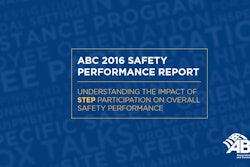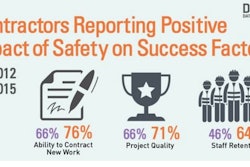The U.S. Department of Labor’s Occupational Safety and Health Administration announces the availability of a total of $4.6 million in funds in the Susan Harwood Training Grant Program.
The grants will fund the creation of in-person, hands-on training and educational programs and the development of materials for workers and employers in small businesses; industries with high injury, illness and fatality rates; and vulnerable workers who are underserved, have limited English proficiency or are temporary workers. The program intends to help workers and employers identify and prevent workplace safety and health hazards.
Nonprofit organizations including community and faith-based organizations, employer associations, labor unions, joint labor/management associations, Indian tribes and colleges and universities are eligible and encouraged to apply for the grants.
“Ensuring that all workers are safe on the job is a top priority for the Labor Department. The Susan Harwood training grants help equip vulnerable workers and their employers with the information and knowledge they need to identify and prevent injuries,” said U.S. Secretary of Labor Thomas E. Perez. “The program continues the proud legacy of its namesake who did so much to understand and improve worker protections in her 17 years with the department.”
The program honors the late Susan Harwood, former director of OSHA’s Office of Risk Assessment, whose tenure led to the development of worker protection standards for exposure to bloodborne pathogens, cotton dust, benzene, formaldehyde, asbestos and lead.
This funding opportunity includes two separate and distinct announcements: Targeted Topic Training Grants and Capacity Building Training Grants.
Targeted Topic Training grants support the development of quality training programs and educational materials that focus on identifying and preventing workplace hazards. These grants require applicants to address the occupational safety and health hazards designated by OSHA in the announcement.
There are two types of Capacity Building grants available: Capacity Building pilot and Capacity Building Developmental grants. Pilot grants will assist organizations in assessing their needs and formulating a capacity-building plan before moving forward with a full-scale safety and health education program. Developmental grants focus on improving and expanding the capacity of an organization to provide safety and health training, education, and related assistance to target audiences.
The funding opportunity announcements are available at http://www.grants.gov/, where new applicants must register and returning applicants must ensure registration is accurate and up-to-date prior to completing the application. The registration process generally takes between three to five business days, but may be as long as four weeks if applicants fail to complete all steps in a timely manner. Organizations new to the System for Award Management will need to allot an additional 14 days for registration to receive a Commercial and Government Entity code.
Applicants are encouraged to begin the process of registering with www.grants.gov as soon as possible. Applications for both Targeted Topic Training grants (SHTG-FY-16-01) and Capacity Building grants (SHTG-FY-16-02) must be submitted by June 28, 2016. All applications must be submitted electronically and are due no later than 11:59 p.m. EDT on the due date. No extensions of the deadline will be granted. OSHA has developed a series of short webinars to assist prospective applicants in understanding the application process. The webinars will be available at http://www.osha.gov/dte/sharwood/index.html.
More information on the Susan Harwood Training Grant Program is available on OSHA’s website at http://www.osha.gov/dte/sharwood/index.html. Questions from the public should be directed to Donna Robertson by emailing [email protected] or calling 847-759-7700. Please note that this is not a toll-free number.





![[Video] Gilbane Higlights Safety Week Theme of 'Stronger and Safer Together'](https://img.forconstructionpros.com/files/base/acbm/fcp/image/2016/05/default.572b646359079.png?auto=format%2Ccompress&fit=crop&h=167&q=70&w=250)













